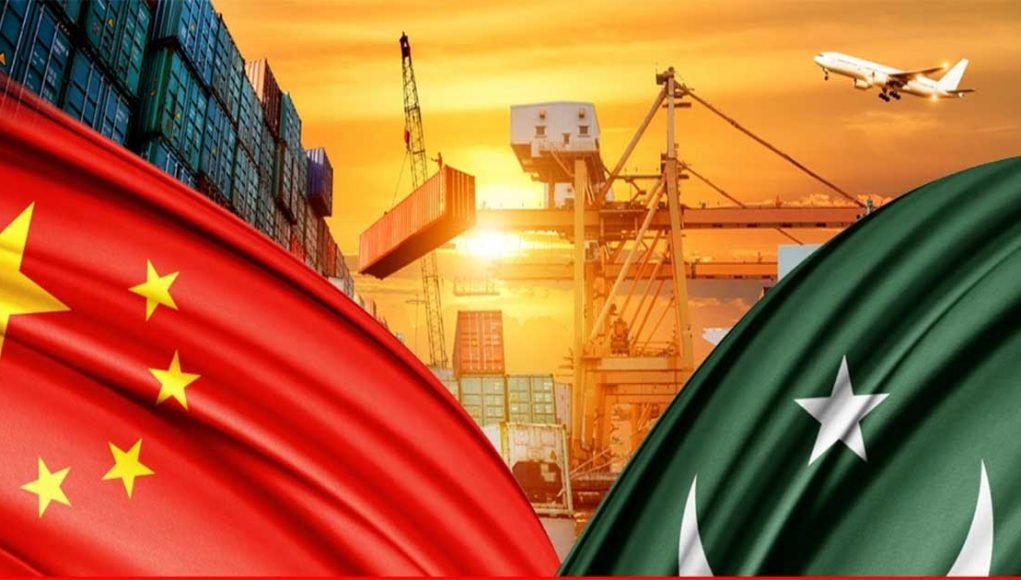
In the age of complex interdependence and the rapidly changing landscape of global political arena, the Pakistan-China relations have successfully survived the thick and thin of time.
History is suggestive of Pakistan and China’s unrelenting affiliation in various spheres of cooperation and in the recent time-period, projects like China-Pakistan Economic Corridor (CPEC) and a common antagonist like India has further bolstered this time tested friendship.
Prime Minister of Pakistan, Imran Khan embarked on his historic four-daylong visit to the People’s Republic of China on February 3, 2022.
The visit is being hailed as an eminent and perfectly timed move by the Pakistani premier.
Of course, it could not happen at a better time than this when Pakistan’s commitment of reshaping its national priorities and its long due conversion to a people-centric state is still a hot topic since the unveiling of the new National Security Policy of Pakistan.
PM Imran Khan’s fresh visit to China has imbued that commitment with a new life.
The visit as indicated by the joint press release was comprehensive and the two sides adequately addressed the underlying concerns on over 21 different sectors relating to trade, security, bilateral cooperation, regional and international political landscape and most importantly the development and future of CPEC.
The visit was a success from a purely economic point of view as Pakistan’s Board of Investment (BOI) and National Development & Reform Commission of China (NDRC) signed the much anticipated framework agreement on Industrial Cooperation under CPEC.
Imran Khan himself held a one-to-one meeting with Chairman NDRC and deliberated extensively over the progress made on projects under CPEC.
China also maintained that it shall commence the second phase of CPEC and manifested its will to expand the volume of its investment in the project to boost industrialization and bring an overall improvement in the livelihoods of common peoples.
Once embodied fully, this much broader phase of CPEC shall boost the industrial and agriculture sector of Pakistan and ensure the introduction of scientific modernization and job creation in Pakistan.
The Foreign Minister of Pakistan Shah Mehmood Qureshi added that both Pakistan and China were making rapid progress on Gwadar port and Gwadar free trade zone which may serve as a channel to promote greater regional connectivity and economic integration.
The first phase of CPEC has been instrumental in enabling Pakistan to develop the requisite infrastructure and has hugely benefited Pakistan in development of its highways to enhance reliable connectivity across Karakoram range and improved inland communication.
Under the aegis of the first phase, Pakistan achieved the completion of 1320 megawatt coal fired power plants in Sahiwal, Port Qasim Karachi and Hub (Baluchistan), 660 Megawatt Engro Thar coal power project and 1000 Megawatt Quaid-e-Azam Solar Park in Bahawalpur.
The hallmark of economic progress and possible new alliances is indicated by the mention of Russia during the visit and Foreign Minister Shah Mehmood Qureshi revealed the upcoming visit of Prime Minister Imran Khan to Russia.
This, of occurs, shall open up a new spectrum of regional cooperation.
Pakistan can benefit from this vital opportunity to ease up the burden of misunderstandings with Russia and cash out on the perks of Russia’s incorporation within the Chinese BRI projects.
This will not only reap favorable economic outcome for Pakistan but would also be a success for Pakistan in the strategic domain against India.
The deliberations as took place on CPEC could otherwise be considered as confidence building measures on security of the ongoing projects as China resumed working on the Dasu Hydropower project on 22 January earlier this year which was halted in July 2021 after a bus carrying Chinese personnel came under attack.
Hence, the contemplation of regional contestation in the light of India’s ever growing strategic aims and its potential reservations and activities to curtail the development of CPEC must have also been spotlighted.
The strategic success of the visit is evident from the reaffirmation of both the parties to support each other’s stances on Kashmir and Xinjiang/Tibet.
China acknowledged Pakistani concerns over Afghanistan and both the parties asserted the essentiality of a peaceful Afghanistan for the collective and peaceful future of the South Asian region.
This acknowledgment was followed by a proposal to invite Afghanistan in a tri-lateral Foreign Ministers dialogue.
The statement as passed by Prime Minister Imran Khan suggesting that China is the bedrock of Pakistan’s foreign policy is indicative of Pakistan’s shift from its westward foreign policy to a more region-centric approach.
Pakistan is already looking to materialize this idea starting with Turkey and Iran.
The inclusion of giant regional powers like China and Russia would further fortify this much anticipated alliance.
President Xijiping signaled his wish to visit Pakistan in the future in a gesture of good faith and as a symbol of his desire to expand the sphere of bilateral cooperation between the two Iron Brothers.
In short, the anticipated visit of President Xijiping to Pakistan will further bolster the ties of both countries guaranteeing success story of CPEC.
.
Source: Published in pak observer


